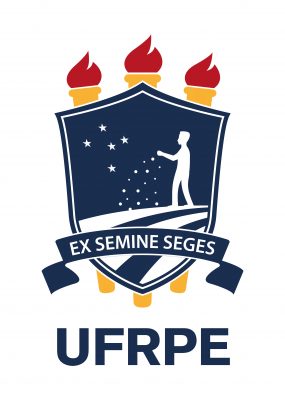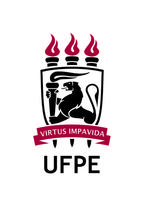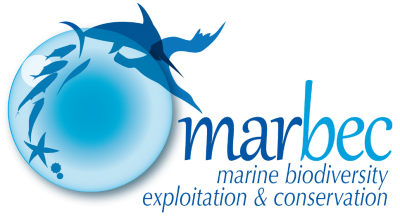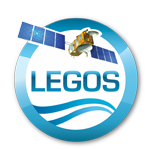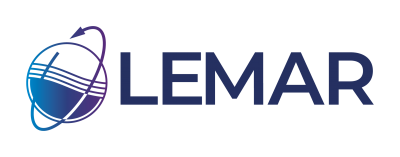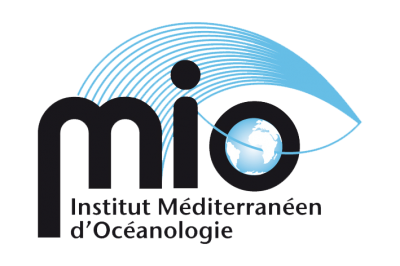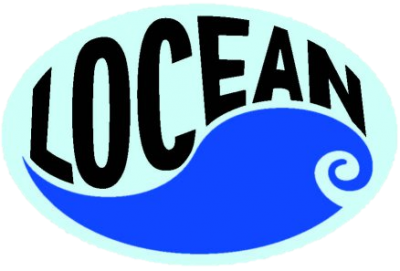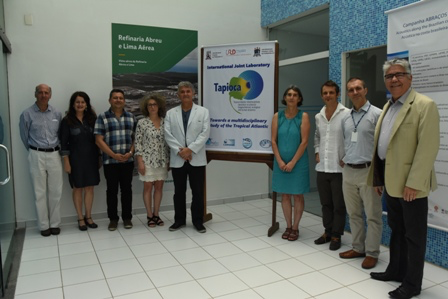
The host partner of the IJL TAPIOCA, build in association with the IRD, are the Universidade Federal de Pernambuco (UFPE) and the Universidade Federal Rural de Pernambuco (UFRPE). Scientific cooperation between French and Brazilians scientists in the field of tropical Atlantic climate change initiated in 1980 with numerous national and international projects (e.g. FOCAL, TOGA, WOCE, CLIVAR, PIRATA, TACE, MADE, GODAE). During the last years, integrated pluridisciplinary projects have been developed to respond the current challenges of global change (Table 1).
Universidade Federal de Pernambuco (UFPE)
At UFPE, the Department of Oceanography (DOCEAN) is the oldest, largest and most reputable center of Oceanography in North and Northeast of Brazil. Created in 1952, the DOCEAN is the second oldest Oceanography centre in Brazil, now completing 63 years. The Department of Oceanography of UFPE has over 3.000 m2 located in the Technology and Geoscience Centre (CTG/UFPE). The DOCEAN is constituted by nine research laboratories: Phytoplankton, Zooplankton, necton, phytobenthos, zoobenthos, Sea Water Chemistry, Physics, Geology, Mariculture, and also an Oceanographic Museum. The Master/PhD Program in Oceanography (PPGO) is also the oldest in the North and Northeast of Brazil, completing 33 years of existence. This program has contributed to the formation of 300 masters and 110 PhDs. The team of the Project is developing research directly with the Department of Oceanography – DOCEAN and also with the Centre for Studies and Essays in Environmental Modelling and Risk – CEERMA located at UFPE.
PARTNER LABS: LOFEC – LABFITO – LABZOO
Universidade Federal Rural de Pernambuco (UFRPE)
Two Departments (Fisheries and Aquaculture, and Statistics and Informatics) of the UFRPE will participate to the IJL TAPIOCA. The Department of Statistics and Informatics has three main areas: Statistics, Informatics and Computing Systems. It is responsible for the Post-Graduate Program in Biometry and offers statistics course to undergraduate and postgraduate students of others Departments of UFRPE. The Department of Fisheries and Aquaculture occupies an area of 4500 m2 and has two auditoriums with capacity of 40 and 100 places. It has been contributing to the formation of professionals in fisheries, aquaculture, fishery technology, oceanography and applied ecology since 1970. It was pioneer in Brazil for the formation of undergraduate Fisheries Engineers. This Department is also responsible for the Post-Graduate Program in Fisheries Resources and Aquaculture (Master and PhD), created in 2000. Currently about 100 students develop their studies with a multidisciplinary approach.
PARTNER LABS: BIOIMPACT – LEMAR
IRD (main partner, France)
Five IRD joint research units (UMR) are official members of the IJL TAPIOCA, involving people from IRD but also from other French institutes (CNES, CNRS, IFREMER) and Universities: (AMU, UBO, ULCO, UM, UPS):
MARBEC: Marine Biodiversity, Exploitation and Conservation (UMR248, IRD/Ifremer/UM/CNRS)
The purpose of the UMR Marbec is to produce and disseminate knowledge, train scientists and provide expertise in the field of marine biodiversity and its uses, mainly in the Mediterranean and in tropical marine ecosystems. Its research activity is based on six ambitions defined according to the challenges facing society in relation to marine biodiversity and its uses: (i) Taking stock of marine biodiversity; (ii) Understanding and modelling the functioning and evolution of marine organisms and ecosystems; (iii) Assessing the causes of marine biodiversity loss; (iv) Proposing tools for the conservation of marine biodiversity and anticipating emerging risks; (v) Promoting sustainable marine fisheries and aquaculture; and (vi) Developing a digital ocean to protect marine biodiversity.
LEGOS: Laboratoire d’Etudes en Géophysique et Océanographie Spatiales (UMR065, CNES/CNRS/IRD/UPS)
LEGOS is a multidisciplinary research laboratory working on key environmental issues related to ocean health and its response to climatic forcing. They associate physical oceanography, marine geochemistry and biogeochemistry. Theses researches themes are linked by an observational approach using remote sensing from satellites. LEGOS specificities are the development of original algorithms for oceanography and the acquisition of in situ data. LEGOS is also leader in the development of sensors and development of new generation numerical models for both open and regional oceans. LEGOS researchers contribute also to the scientific developments of operational oceanography at Mercator Ocean. IRD team of LEGOS coordinates PIRATA in France and is strongly involved in West Africa through its team in Cotonou/Benin (projects PROPAO & ALOC-GG and capacity building with regional Master & PhD) in interaction with Brazilian partners (UFPE).
LEMAR: Laboratoire des sciences de l’Environnement Marin (UMR195, IRD/CNRS/UBO/ IFREMER)
The LEMAR is a laboratory, which main research objectives are the study and understanding of the processes regulating the interactions between the environment, climate and marine ecosystems in the context of global change. The laboratory is highly multidisciplinary including biology, physics, chemistry, ecotoxicology, law or sustainability science. The laboratory is essentially structured by the scale, with three teams: the 1st team studies are mainly from the molecular to the population level, the 2nd’s from the organism to the socio-ecosystem level and the 3rd’s from the element to the global ocean. The second team, particularly involved within TAPIOCA, aims at understanding diversity, structure, dynamics and functioning of populations and communities in marine ecology. Pelagic and benthic ecosystems are studied, as well as the interfaces, by a combination of approaches including underwater acoustics, laboratory experiments, proxy calibration and modelling.
LOG: Laboratoire d’Océanologie et de Géosciences (UMR8187, ULILLE/ULCO/CNRS/IRD)
The Laboratory of Oceanology and Geosciences is a highly interdisciplinary laboratory dealing with fundamental and applied research in oceanology and geosciences focusing on both coastal and open ocean ecosystems. The research performed at LOG is remarkably balanced between observation, experimentation, and modelling activities. The pronounced pluri-disciplinary dimension of LOG researchers (marine geology, ecology, biology, marine biogeochemistry, physical oceanography, marine optics, geomorphology, sedimentology) allows scientific questions to be addressed over a large range of spatiotemporal scales (from bacteria to satellites; from microscales to climate) in the general objective of better understanding the response of marine ecosystems to environmental changes of natural and anthropogenic origins. LOG teams are also involved in the international joint laboratories LOTUS (Vietnam) and ECLAIRS 2 (Western Africa).
M.I.O.: Institut Méditerranéen d’Océanologie (UMR Aix-Marseille Univ., Univ. Toulon, CNRS, IRD)
The objectives of M.I.O. are to investigate the ocean system and its evolution in response to global change. M.I.O. is a multidisciplinary research unit with a strong expertise in biology, ecology, biodiversity, microbiology, fisheries, physics, chemistry, biogeochemistry and marine sedimentology. The working environment of M.I.O. is the world ocean, its interfaces with the continent, the atmosphere and the sediment. M.I.O. scientists conduct research in the areas (i) of ocean and atmospheric circulation, (ii) of marine ecosystems and biodiversity from bacteria to fish, (iii) of biological functioning in extreme environments and (iv) of ocean pollution and contaminants. M.I.O. requires oceanographic cruises, the use of innovative instruments equipped with sensors, radars installed on the coast and analysis of satellite images, as well as numerical analysis, mathematical modelling and laboratory resources.
LOCEAN: Laboratoire d’Océanographie et du Climat: Expérimentations et Approches Numériques (UMR182, IRD/CNRS/UPMC/MNHN)
The research at LOCEAN aims at understanding the ocean variability (physics, biogeochemistry, biology) and its role on climate variability at different spatial/temporal scales, combining observations and numerical modelling analysis. LOCEAN is part of IPSL, a large federation regrouping laboratories involved in climate science. Various activities developed in the IJL TAPIOCA are consistent with LOCEAN on-going projects, objectives and expertise particularly in mesoscale/submesoscale physical and biogeochemical oceanic processes, dynamics of continental shelf, biodiversity, and regional climate.
Associated Institutions, Brazil
- Universidade Federal da Bahia (UFBA)
- Universidade Federal de Alagoas (UFAL)
- Universidade Federal de Ceara (UFC)
- Universidade Federal de Rio Grande (FURG)
- Universidade Federal de Rio Grande do Sul (UFRGS)
- Universidade Federal de Sergipe (UFS)
- Universidade Federal do Pará (UFPA)
- Universidade Federal do Rio de Janeiro (UFRJ)
- Universidade Federal do Rio Grande do Norte (UFRN)
- Universidade Federal Rural da Amazônia (UFRA)
Associated structures, France
- GET – Laboratoire Géosciences Environnement Toulouse (CNES/CNRS/IRD/UPS)
- LOCEAN – Laboratoire d’Océanographie et du Climat: Expérimentations et Approches Numériques
- LOPS – Laboratoire d’Océanographie Physique et Spatiale (CNRS/IFREMER/IRD/UBO)
- MERCATOR Ocean, a French operational agency for oceanography
- CEBC – Centre d’Études Biologiques de Chizé



